These were supposed to be the happiest days of the year for the residents of Rahat.
The end of Ramadan fasting, the day before Eid al-Fitr - the big, family-friendly holiday that marks the sooty hot months in the southern city.
A frenetic bustle of shopping, stocking up on food and sweets and visits to or with friends and relatives.
But this year the holiday atmosphere in the city has become tense.
While the roads are crowded with cars of the city’s residents and many of the Bedouin diaspora’s residents, the shops and markets are empty and too many faces are conveying concern.
Passers-by are examined with apprehension.
The reason for the tension in the streets of the largest Bedouin community in Israel, which many refer to as a kind of "ex-territory", lies in the clan conflict, which turned from a series of fights and provocations into an armed gang war on the city streets.
In recent weeks, gunmen have fired at two popular cafes in the city and at a brand store.
In another case, in an exchange of fire in the middle of the street between two armed groups, a stray bullet wounded a 14-year-old girl, Rims Abu Ali, while she was at home and preparing for the last meal before the start of the fast.
The shooting lasted for several days, for hours every day, until even Prime Minister Naftali Bennett was required to address the outbreak of violence and declared that "the law of Rahat is the law of Tel Aviv."
My visit to Rahat, where I also stayed for the night, takes place less than a week after the clashes broke out.
My first stop is the steaming kitchen of one of the best known cooks in town, and the one who volunteered to try to explain to me the atmosphere of anarchy in the last Ramadan month, Chef Sultan Abu Jarbua.
"The cause of the violence is not a religious issue," he emphasizes, referring to reports that the reason for shooting at one of the cafes was the employment of waitresses at the place.
"The handful of people responsible for the shootings and fights have all sorts of reasons and excuses for what they do, but what makes it possible is a conflict between two families: the al-'Ubra family, who are veterans and respected, and the al-Bahiri family, which has become one of the city's rising forces in recent years."
הוא מנהל ביד רמה את המסעדה שלו, שזכתה בלא מעט תעודות הצטיינות מטעם מוסדות קולינריים שונים בארץ ובעולם. יש עוד כמה שעות עד לצאת הצום, אבל אבו ג'רבוע ועובדיו כבר עמלים בתוך ענן הניחוחות של התבשילים, ובראשם ה"מנסף" - בשר הכבש המבושל ביוגורט ומוגש עם אורז או בורגול - המזוהה עם האוכלוסייה הבדואית יותר מכל, כדי להספיק לעמוד בהזמנות הרבות לקראת סעודת האיפטאר האחרונה בחודש הרמדאן.
His business, he explains, is the result of the great change that Rahat has undergone in recent decades.
"Progress has not missed us either, and a lot of women have started going out to work. So if the husband wants traditional dishes every day, he has somewhere to call and order," he smiles.
But the smile is suddenly erased when I mention the shooting incidents.
"One of the things that stands out in this sequence of events is the strengthening of local arbitrators, sheikhs and veteran Bedouin leaders, vis-à-vis the police and the courts," he says with concern, meaning that more and more Rahat and Diaspora residents prefer their tribal leaders as conflict resolvers and defense institutions.
"I very much respect our leadership, but there is an erosion in the state's ability to ensure peace. We all feel the consequences of the wave of violence. Many people who came from outside stopped coming, and customers from the Jewish sector in general put their feet up. say".
"Fatigue and fear"
"This is perhaps the saddest holiday we've had in a decade," says Hamuda Amash, who owns a clothing store in the market complex.
Amash sells luxury brands that are popular with local young people, who are also willing to spend thousands of shekels on clothes and hairstyles.
"The general feeling is of fatigue and fear," he says.
"The locals stay at home, and that affects the rest of the diaspora. This shooting just ruined us. Add to that two years of corona and rising prices - and we have no idea how we'll get through it."
Karim Abu Elkien, a salesman at a toy store, also laments the sparse traffic in the market.
"The Bedouin could have been the most loyal public to the state, but the state neglects Bedouin society and Rahat," he says.
"Once the recruitment to the IDF among the members of the community was much more significant, today it is in free fall.
This is a result of neglect.
"This violence stems from a lack of policing. Until there was a shooting here, we did not see the police at all. We do not feel represented in the government or state institutions, and neither did RAAM and Mansour Abbas change that.
"As long as the people here feel that the state does not see them, there will be a mess here that will ruin lives, especially for us."
"Feel the consequences of the wave of violence."
The market in Rahat, Photo: Dudu Greenspan
While walking in the market, I meet Khalil al-Amur, a former council member and one of the city's dignitaries, waiting in line at a spice shop.
"The situation here is delicate and requires the involvement of all parties together, in dialogue, to prevent young people from taking the law into their own hands," he says, "but when it comes to those who use violence, the police must be present and visible. .
Demands for greater policing and crackdown on criminals recur in almost every conversation with city residents, but the reality in Rahat is complex, as is the relationship between the population and the uniformed blues.
A clear example of this is in front of our eyes, when at the intersection in the city there is a mobile at noon with a policeman handing out traffic reports to prevent riots on the roads.
The argument becomes an ongoing brawl, drawing more and more residents, including the angry driver's brother and cousin.
The confrontation degenerates into urgency and hand gestures, until a local journalist arrives on the scene and tries to reconcile the hawks.
He manages to send everyone home and also reassure the policeman, who found himself alone in front of dozens of residents of the neighborhood.
"Distribute reports" on the eve of the holiday?
What kind of idea is this? "Complains to the journalist after the parties disperse." Obviously it will cause a commotion here. "
If the residents here demand real police enforcement and this is what happens when a resident of Rahat receives a traffic report, I wonder out loud, what will happen when they come to confiscate illegal weapons?
It is clear to both of us that the answer to this is complex, but the journalist believes that even if there is opposition to collecting weapons and dealing with gangs, most residents will side with law enforcement, mainly because of the suffering they have suffered from the violence.
Debate over a deteriorating report for urgency and hand movements. Young people in Rahat near a traffic police car, Photo: Dudu Greenspan
The hours to go fasting are passing, and we rush to a meeting with Mahmoud Al-Amor, head of Rahat's economic society, who hosts us in his office as he leans on a large map of the city.
Al-Amor, who believes that the problem of violence is directly related to the economic situation of the residents, vigorously shows us the industrial areas planned by the company - an industrial belt and logistics east of the city, which can employ tens of thousands of residents and even includes a high-tech area.
"The idea is that by 2040, the city will be able to provide jobs for anyone who wants to provide for a family with dignity," he says with shining eyes.
"If we can provide quality jobs for both breadwinners, that is, for both men and women, we will lift the city out of poverty, and the main problem will be solved."
Despite the optimism, he too finds it difficult to ignore the damage caused by the wave of violence.
"The events of Ramadan suffered a fatal blow because of the shooting," he admits in frustration.
"We had more than a thousand cancellations of tours, and even the sweet festival we held in the city was attended by far fewer people than expected. The impact of such cases is disproportionate to what is happening. Their damage adversely affects our tourism, sometimes even months ahead."
Rahat is one of the most devout Muslim communities in Israel, and it is difficult to understand the violence that befell it without asking what the role of the clergy is in resolving the complicated situation.
In the Nur Mosque in the al-'Ubra neighborhood in the city center, I meet Sheikh Hamed Abu Da'abs, the leader of the southern faction of the Islamic Movement and an important cleric in Rahat.
We speak at the end of a long sermon he delivered to the believers in the mosque about the approaching holiday and its meaning, and I try to challenge it with the question of how the month of Ramadan - a month of charity, prayer and rapprochement - became a month in which the number of violence in the Arab sector skyrocketed.
"Unfortunately, many people are very good at doing the mitzvos of the hands and head, but very weak at the mitzvos of the heart," he explains.
“They fast and come to the mosque to pray, but let jealousy, extreme thoughts and hatred ruin their spiritual work.
"I always tell worshipers who come to my sermons that this world is so small in the Creator's universe, that this life is just a small tier in our existence, that we must not waste it on hatred. He who holds hatred in his heart destroys all his religious effort."
But very quickly, Abu Daabes' words slide from the personal and the religious - to the political.
"It's unfortunate and awful that there are those who turn this month into a period of nationalism and extremism," he says.
"This world, and here in Israel it is well felt, is divided into pigeons and hawks - and two hawks are enough to spoil a hundred pigeons.
"People of compromise and acceptance of the other, like Mansour Abbas, are attacked by hawks from Arab society and Jewish society and suddenly it is possible to think that the entire public, on both sides, opposes compromise. This is not the case - the silent majority is actually interested in integration and compromise."
Aside from the political stance behind Abbas, it is clear that the cleric is concerned about other forces stirring up what is happening in Rahat.
His remarks are aimed at hinting at an increase in public response to extremist Internet preaching, which originates in all sorts of Islamist organizations and mainly affects young people.
In addition, it is possible that Abu Da'abs is also frustrated by the strengthening of clan leaders.
Although the Bedouin public respects the words of the clergy and makes sure to reach the mosque, it seems that the last word belongs to the sheikhs, whose interests are different from those of the Islamic movement.
"Help ourselves"
In the complex circumstances of Rahat, the one who manages to deliver the most optimistic prospect is also the one who has great confidence in the future generation of the city.
This is Fuad Ziadna, the director of the municipal community center, one of the few bodies in Rahat that works for the welfare of children and youth and in recent years has become not only a home for classes but a pillar of community life, in a city where the emphasis on family and tribe is so critical.
"There is such great potential in this city that we are not even close to starting to realize it," he says not sadly but hopefully, with shining eyes and a shy smile.
"We work with children and youth in classes, provide content and enrichment to the education system and work with at-risk youth and youth with special needs. This year we even started running a program for seniors as well.
"You can not just constantly ask for outside help or complain that more needs to be done. Obviously we need to, but we need to help ourselves and harness all our capabilities.
"The field of non-formal education can do so much for children and youth, give them a toolbox and skills that will prepare them for the future."
Ziadna insists that even in the difficult period going on in the city, the community center serves as a unifying factor. A kind of outlet for those who refused to stay in their homes and show indifference.
"During the month of Ramadan we held a cookie baking event for needy families, which was attended by hundreds of women despite the apprehension and situation. Last week we held a Ramadan event for the children.
"We were afraid that no one would come because of the incidents, but more than a thousand children participated and it made it clear to us how many people in this city are thirsty for social activities. It is important to me that a child from Rahat knows children from Tel Aviv, but it is equally important for other children from Rahat."
Wrapped in the cloud of optimism of the community center, I go out to an evening of Rahat, which begins to be filled with a festive atmosphere. Everyone rushes to the houses, to spend the holiday with the families, and the atmosphere calms down a bit and becomes more contained and friendly.
City residents line up in stores until the very last minute, filling in gaps for the meal.
Some stop with their car and invite me to a meal, a testament to the so familiar heritage of Bedouin hospitality.
When the muezzin finally reads the last call to leave the fast, there is complete silence in the city.
Everyone is concentrating on the holiday meal, for the last time this year.
The feeling of relief grows as the minutes go by, as I sit and dine my heart out with some of my new friends downtown.
"What a silence," I mumble between bites, and the friends laugh and hurry to reply, "yes, but it will only last a quarter of an hour, the commotion will start soon."
"Iron Hand".
Khalil al-Amor, Photo: Dudu Greenspan
Indeed, as soon as the fast-breaking meals end, the residents hurry, by car and on foot, to take to the city streets.
The young men are watching a football game and smoking a hookah in one of the local cafes.
In a cafe like this, which was the focus of one of the recent shooting incidents, I meet lawyer Talal al-'Ubra, the owner.
"You can understand what a difficult two weeks we had," he describes to me of the heavy damage done to the place, but claims he is actually pleased with the police response.
"I felt they were taking the events seriously. They were showing up, and the commissioner's arrival in Rahat sent the right message.
"If the police had shown such a presence in the routine, the situation here would have been completely different."
Next to al-Obra is a group of young people with a hookah.
When I ask if they are not afraid to sit in a cafe where a shooting incident took place, they laugh.
"We are Bedouin and are used to not being afraid," replies Hilal, one of the young men.
"The dignitaries want to bring the police here, but really everything is fine, the media just inflated everything."
I spent the night in Bedouin accommodation with Fatma, a resident of the city who hosts her home, a large Bedouin encampment, and shares with her guests the Bedouin folklore and ancient customs of the desert inhabitants.
"I even studied theater, to better explain to groups of small children," she says, as she proudly shows me the compound.
When I go to bed, knowing that I am probably the only Jewish tourist who tends to stay in Rahat, I hope to dream of not long days, when tourists like me will be much more common.
Between Hebrew and Arabic
In the morning, just before parting from the city, I go out for another walk down the street and a young family at a toy store catches my eye.
The mother chooses holiday gifts together with her children.
They examine the children's bookshelf, and I notice that almost all the books there are written in Hebrew.
It is difficult not to think how common the Hebrew language is in the daily lives of the residents of Rahat, and how wrong it is to treat the city and its residents as "ex-territory" or as "state within state".
Although Rahat is an end point of Israeliness, it is no less a part of it as such - and reflects problems that also exist in many other places in Israel.
The ability to contain, nurture and pull into the social center even the edges is one of the tests on which the lives of all of us will rise and fall.
We must honestly ask ourselves not only how much we as a society and as a country are successful at this, but how much we are trying at all.
shishabat@israelhayom.co.il
Were we wrong?
Fixed!
If you found an error in the article, we'll be happy for you to share it with us

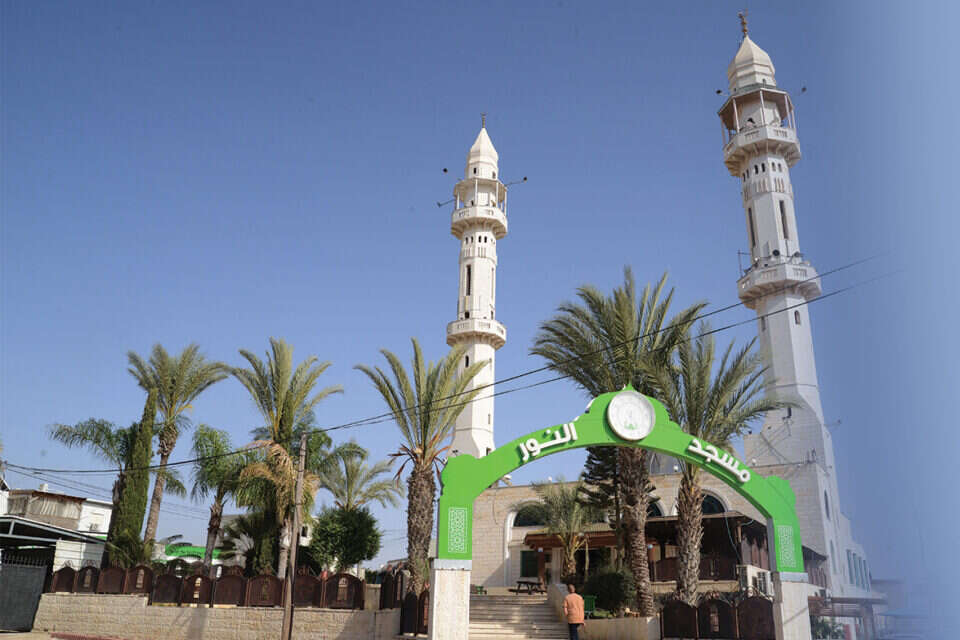
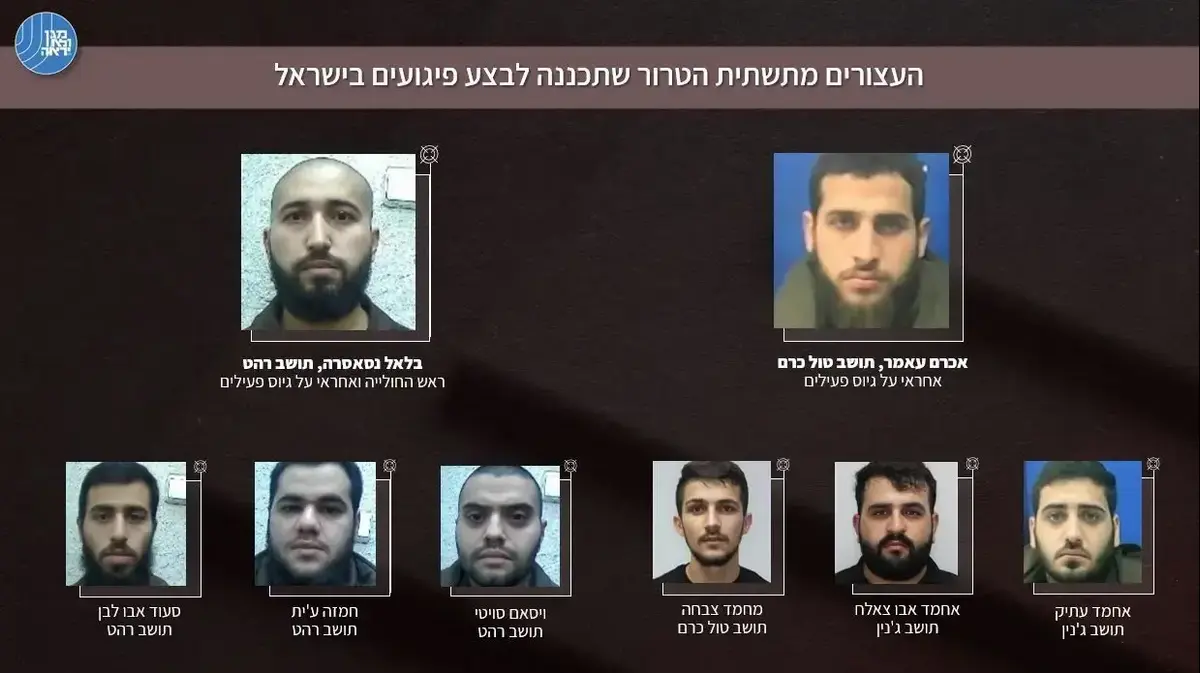
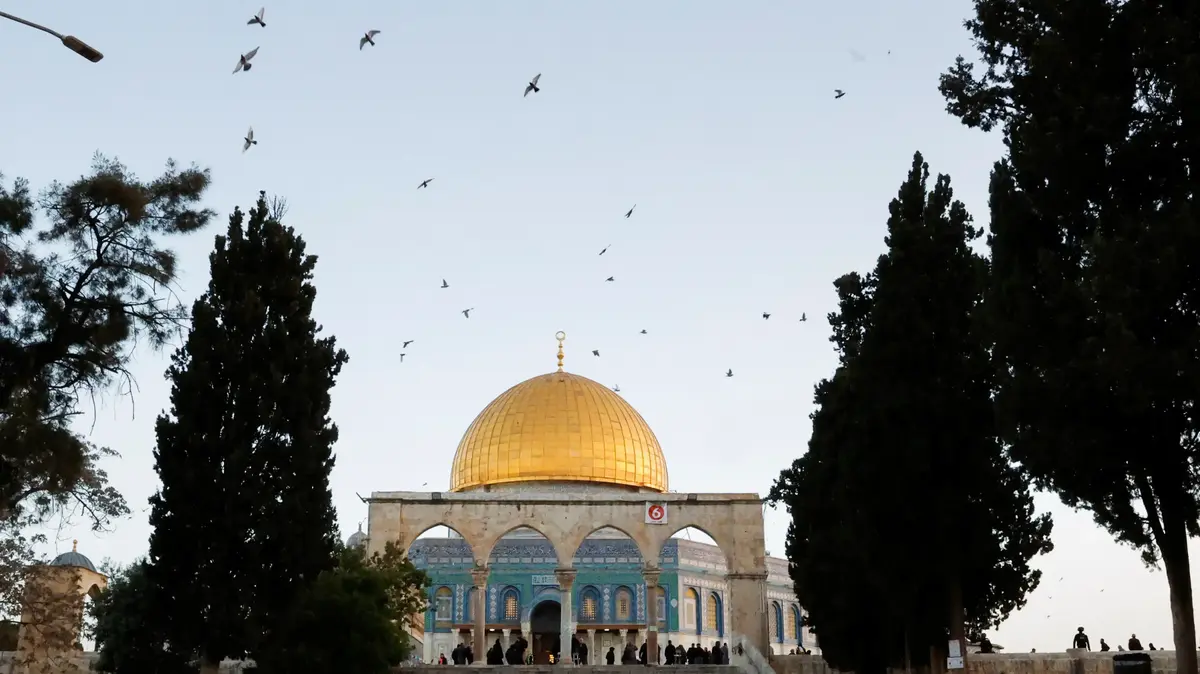

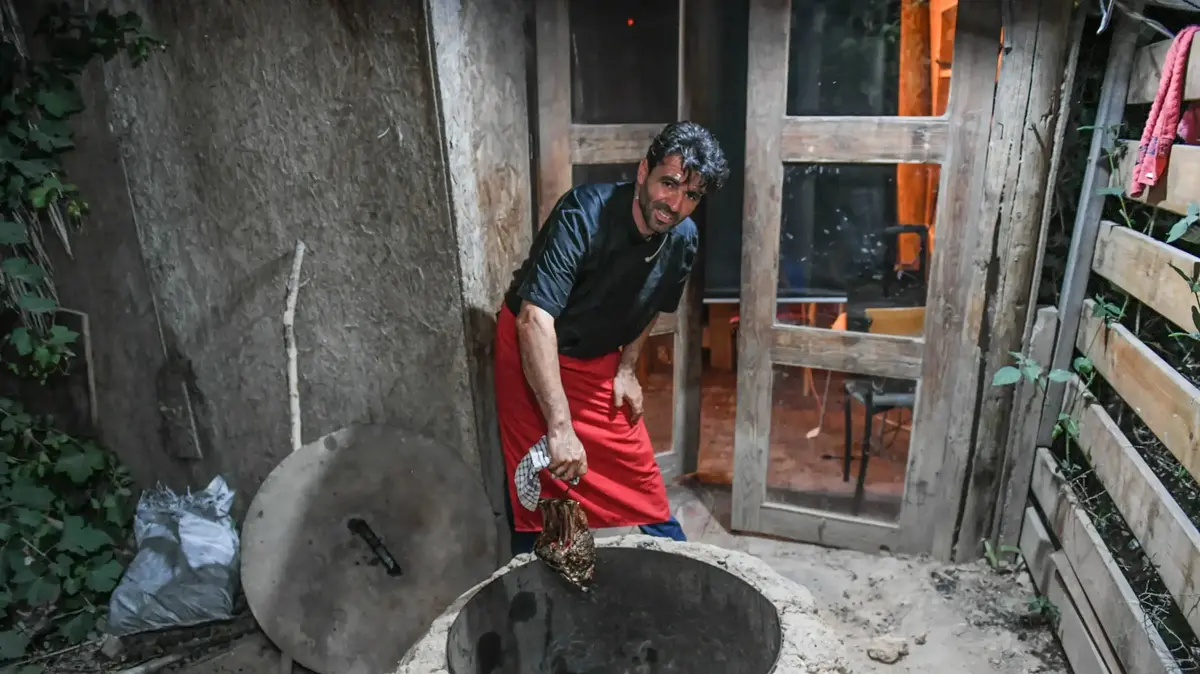

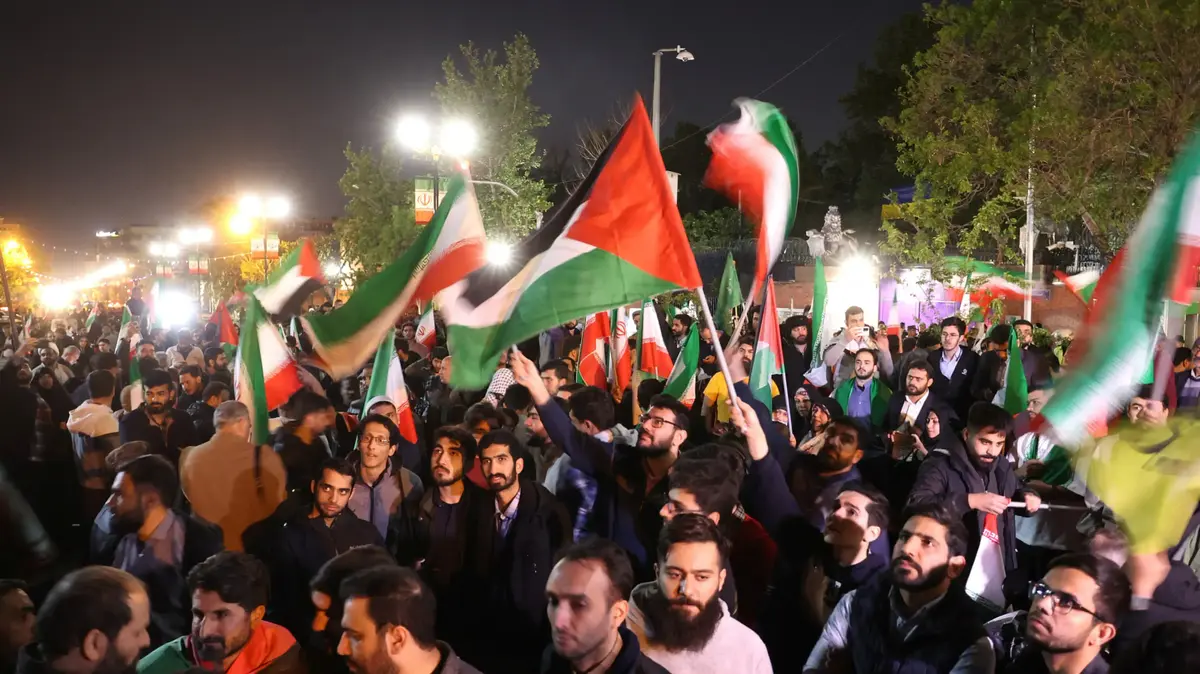
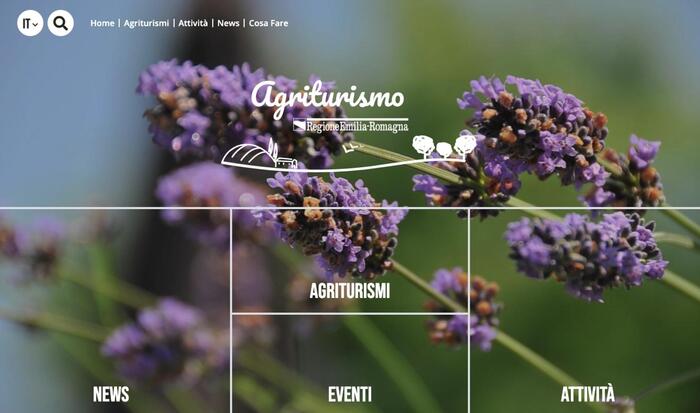
/cloudfront-eu-central-1.images.arcpublishing.com/prisa/OJSQ7GWB5BC4XBQDMMJFYJF5BU.jpg)